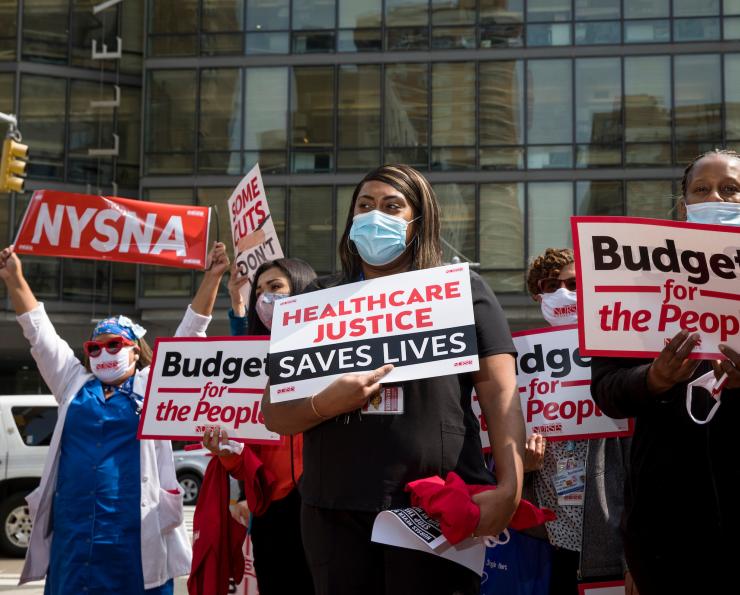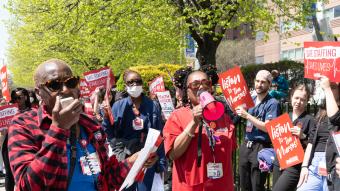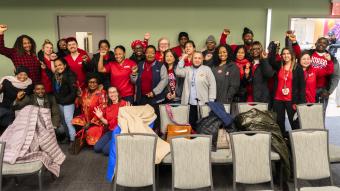Defend Public Hospitals
New York state’s public hospitals care for all New Yorkers, and they are the frontline of our defense against infectious diseases, like COVID-19. It’s RNs mission to take care of all patients.

New York’s public hospitals care for all New Yorkers, and they are the frontline of our defense against infectious diseases, like COVID-19. It’s nurses’ mission to take care of all patients.
But from Buffalo to Westchester to New York City, our public hospitals are underfunded and in danger. Public sector nurses are fighting back against efforts to cut funding, cut or privatize services, close facilities or impose other austerity measures.
NYSNA is building a powerful coalition of patients, community leaders and elected officials to fairly fund and safely staff our public healthcare system. We believe every patient is a VIP and should receive quality care, regardless of their ZIP code or ability to pay. We are committed to ending the two-tiered system of healthcare that drives racial and income-based healthcare disparities. Together, we have the power to protect the vital public hospitals that New Yorkers depend on, improve access to care and ensure quality care for all.


